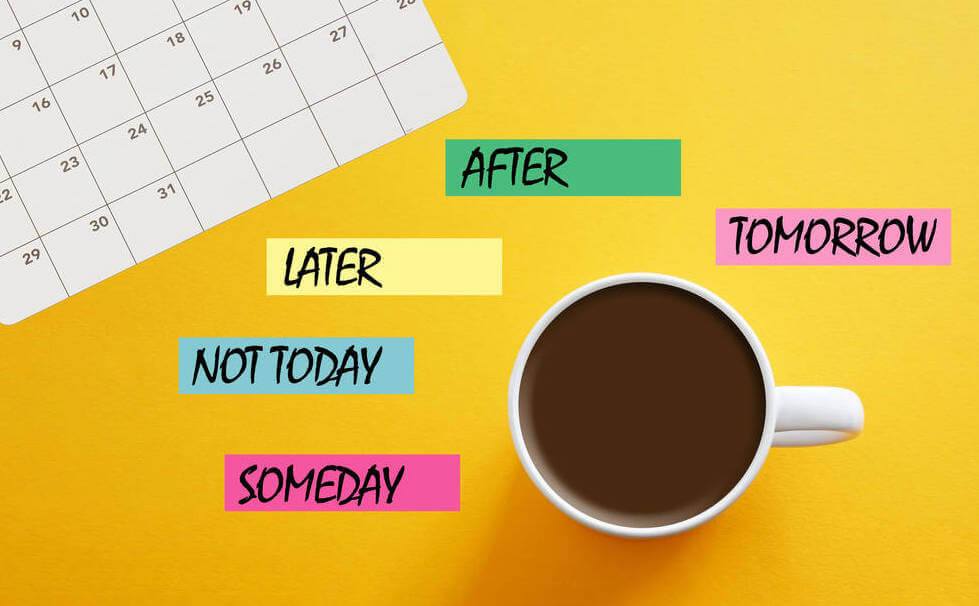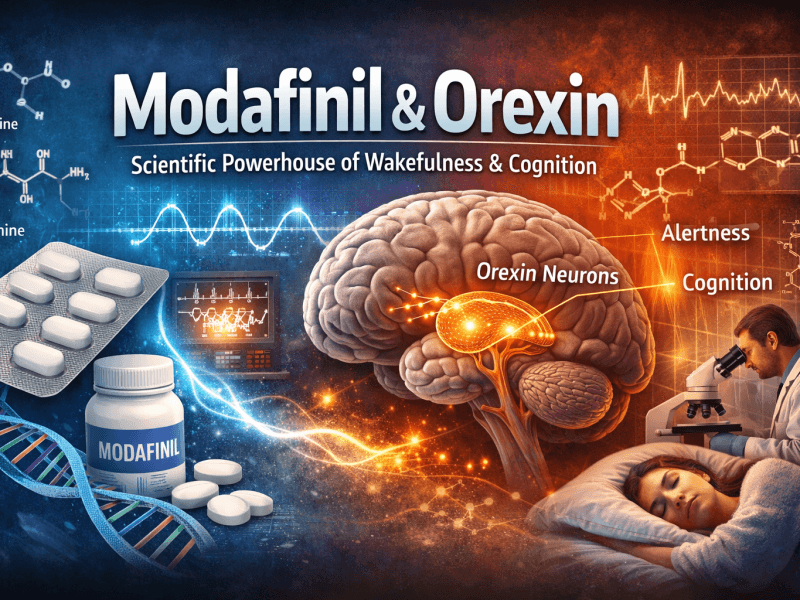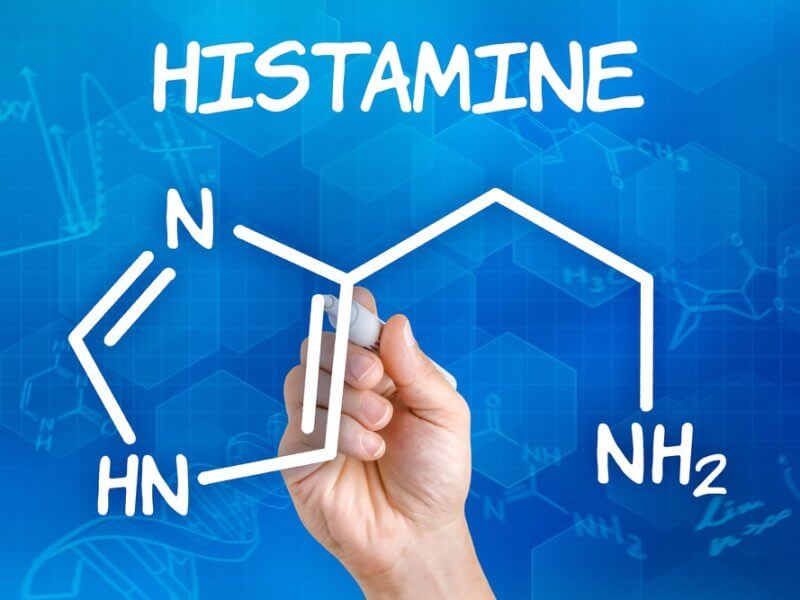Procrastination is one of those universal human experiences everyone has delayed a task they knew they needed to do. Whether it’s putting off writing a report, avoiding chores, or hesitating to study for an exam, procrastination can creep into daily life and chip away at productivity.
At the same time, there’s a growing interest in pharmacological aids that might help people fight procrastination. One of the most talked-about substances in this category is Modafinil a wakefulness-promoting drug originally designed for narcolepsy and other sleep disorders. Over the years, Modafinil has gained a reputation as a “smart drug” or “productivity enhancer” especially among students, entrepreneurs, and professionals.
Whether Modafinil can genuinely help with procrastination, research, benefits, risks, and real-life experiences of users.
What is Procrastination?
Procrastination is the act of delaying or postponing tasks despite knowing there may be negative consequences. Psychologists often describe it as a self-regulation failure where your immediate desire to avoid discomfort outweighs your long-term goals.
Definition and Psychological Roots
At its core, procrastination isn’t just “being lazy.” It’s often linked to emotion regulation people put off tasks because the thought of doing them causes stress, boredom, or self-doubt.
Common Triggers
- Overwhelm from task complexity
- Fear of failure
- Lack of clarity on how to start
- Perfectionism
Types of Procrastinators
- Perfectionists – wait until they feel “ready”
- Dreamers – get lost in planning but struggle with execution
- Crisis-makers – work only under last-minute pressure
- Avoiders – sidestep tasks that trigger negative feelings
Impacts on Productivity and Mental Health
Chronic procrastination can lead to missed deadlines, stress, guilt, and even depression. For students and professionals, this can have career-altering consequences.
The Science Behind Procrastination
Modern neuroscience suggests procrastination isn’t about poor time management it’s about the battle between the limbic system (emotional brain) and the prefrontal cortex (decision-making brain).
Brain Regions
The amygdala processes emotions, while the prefrontal cortex helps with planning and impulse control. When emotional discomfort dominates, the brain leans toward short-term pleasure over long-term goals.
Dopamine’s Role
Dopamine is the brain’s motivation currency. Tasks that don’t promise immediate rewards often fail to spark dopamine release, making them harder to start.
Chronic vs. Situational
Some procrastination is situational caused by specific stressors while chronic procrastination is a persistent pattern linked to personality traits and brain chemistry.
Introduction to Modafinil
Modafinil is a wakefulness-promoting medication that was first approved in the late 1990s for the treatment of narcolepsy, shift work sleep disorder, and obstructive sleep apnea related excessive daytime sleepiness.
History of Modafinil’s Development
Originally developed in France by Lafon Laboratories in the late 1970s, Modafinil emerged from a series of experimental compounds aimed at combating excessive sleepiness without the addictive potential of amphetamines. By 1998, the U.S. Food and Drug Administration (FDA) had approved it under the brand name Provigil.
Approved Medical Uses
The primary approved uses of Modafinil are:
- Narcolepsy – reducing sudden sleep attacks.
- Shift Work Sleep Disorder – improving alertness during irregular work hours.
- Obstructive Sleep Apnea – combating residual sleepiness even after CPAP treatment.
Off-Label Uses for Focus and Alertness
In real-world settings, many people use Modafinil off-label for:
- Enhancing concentration during long study sessions.
- Maintaining focus during extended work hours.
- Fighting mental fatigue during demanding projects.
Legal Status Around the World
In the U.S., Modafinil is a Schedule IV controlled substance, requiring a prescription. In the UK, it’s prescription-only. Some countries, like India, sell it over-the-counter, while others ban it entirely. This patchwork of legal status adds to its mystique and controversy.
How Modafinil Works in the Brain
Understanding Modafinil’s potential against procrastination requires a dive into its neurochemical effects.
Mechanism of Action
Modafinil’s exact mechanism is not fully understood, but it appears to:
- Increase dopamine availability by inhibiting dopamine transporters.
- Activate orexin neurons, which promote wakefulness.
- Enhance histamine release, keeping the brain alert.
Neurotransmitter Effects
- Dopamine – boosts motivation and reward anticipation.
- Norepinephrine – increases alertness and energy.
- Histamine – sustains wakefulness.
Modafinil vs. Traditional Stimulants
Unlike amphetamines, Modafinil produces a more subtle “alert” state without intense euphoria or crashes, reducing addiction risk.
Duration of Effects
The drug has a half-life of 12-15 hours, meaning a single dose can last the entire workday potentially turning a distracted morning into a focused marathon.
Potential Benefits of Modafinil for Procrastination
Can a pill really help you start and finish tasks you’ve been avoiding? Here’s where Modafinil might make a difference.
Improved Wakefulness and Reduced Fatigue
Fatigue often fuels procrastination. By reducing tiredness, Modafinil removes a major barrier to starting work.
Enhanced Executive Function
Executive functions planning, prioritizing, task-switching are central to productivity. Studies show Modafinil can strengthen these functions, especially under sleep deprivation.
Increased Motivation
By influencing dopamine pathways, Modafinil can make tasks feel more rewarding, helping to overcome the “I just don’t feel like it” hurdle.
Better Sustained Attention
Procrastination often involves task-hopping and distraction. Modafinil’s attention-sustaining effects can help keep you locked into a single task for hours.
Evidence from Scientific Studies
Let’s look at what research says not just anecdotal reports.
Research on Cognitive Performance
Meta-analyses suggest Modafinil improves attention, working memory, and learning, particularly in sleep-deprived individuals.
Studies on Motivation
Some experiments find that Modafinil enhances effort-based decision-making meaning people are more willing to take on challenging tasks.
Academic and Workplace Productivity
University-based research has shown improved task completion rates in students taking Modafinil compared to placebo, though not necessarily better quality of work.
Limitations of Research
- Small sample sizes.
- Many studies focus on healthy volunteers under lab conditions, not real-world chronic procrastinators.
- Long-term effects remain under-studied.
Potential Risks and Side Effects
No cognitive enhancer is without trade-offs.
Common Side Effects
- Headaches
- Nausea
- Nervousness
- Insomnia
Rare but Serious Risks
- Severe skin reactions (Stevens-Johnson syndrome)
- Allergic reactions
- Cardiac complications in susceptible individuals
Long-Term Safety Concerns
Because most research focuses on short-term use, there’s limited data on what happens with years of off-label consumption.
Dependency Potential
While Modafinil is less addictive than amphetamines, psychological reliance can develop if people feel unable to perform without it.
Who Might Benefit from Modafinil?
Diagnosed Sleep Disorders
Those with narcolepsy or sleep apnea often experience dramatic productivity boosts.
High-Demand Professionals
Surgeons, pilots, and military personnel have used Modafinil to maintain performance during extended operations.
Students
Some students use Modafinil for exam preparation marathons, though ethical debates swirl around academic fairness.
People with ADHD
In some cases, Modafinil may help ADHD symptoms, especially when stimulants aren’t tolerated.
Who Should Avoid Modafinil?
Heart Conditions
The drug can raise blood pressure and heart rate.
Psychiatric Disorders
It may exacerbate anxiety, mania, or psychosis in vulnerable individuals.
Pregnancy & Breastfeeding
Potential risks to fetal and infant development are unknown.
Drug Sensitivities
Those prone to allergic reactions should be cautious.
Alternatives to Modafinil for Procrastination
While Modafinil can be a useful tool, it’s far from the only approach to battling procrastination. Many people prefer non-pharmaceutical strategies for long-term improvement.
Behavioral and Cognitive Strategies
- Cognitive Behavioral Therapy (CBT) – helps address the thought patterns behind procrastination.
- Implementation intentions – pre-planned “if-then” rules (If it’s 8 a.m., then I start writing).
- Task chunking – breaking large projects into smaller, less intimidating steps.
Lifestyle Changes
- Regular sleep schedule – aligns your circadian rhythm with your peak productivity times.
- Balanced diet – stabilizes blood sugar and prevents mid-day energy crashes.
- Daily exercise – boosts mood and executive function.
Other Supplements and Nootropics
- Caffeine + L-theanine – mild focus boost without jitters.
- Bacopa monnieri – traditional herbal nootropic for memory.
- Omega-3 fatty acids – support brain health and mood stability.
Professional Therapy
Sometimes procrastination is a symptom of deeper issues such as depression, anxiety, or ADHD which may require professional intervention.
Combining Modafinil with Other Strategies
For those who choose to use Modafinil, combining it with practical methods can maximize benefits while reducing reliance.
Time Management Techniques
- Eisenhower Matrix – categorize tasks by urgency and importance.
- Time blocking – assign fixed time slots for specific work.
Habit Stacking
Attach a desired action to an existing habit (e.g., After I make coffee, I open my laptop and write for 20 minutes).
Pomodoro Technique with Modafinil
Using 25 minute focus sprints while under Modafinil’s heightened alertness can lead to impressive output.
Optimized Work Environment
Eliminate distractions silent phone mode, website blockers, clean workspace to fully leverage Modafinil’s focusing effect.
Legal and Ethical Considerations
Modafinil’s growing popularity raises important questions about legality, ethics, and fairness.
Prescription Laws
In most countries, possession without a prescription can lead to legal consequences, even if the drug itself is not classified as a narcotic.
Ethical Debates in Academia and Workplace
Is using Modafinil for better grades or work performance “cheating”? Opinions vary, with some comparing it to doping in sports.
Fairness and Performance Enhancement
Access inequality is a concern those with resources can afford pharmaceutical boosts, potentially widening performance gaps.
Employer Policies
Some industries have strict rules on performance-enhancing substances, especially in aviation, medicine, and competitive sectors.
Real-Life Experiences
Beyond the research, personal accounts provide valuable insights into how Modafinil affects procrastination.
Testimonials from Users
Many report being able to finally tackle long-postponed projects, describing Modafinil as “like flipping on a light in a dark room.”
Professional Case Studies
Doctors pulling double shifts, software engineers debugging all night, and entrepreneurs building start ups often credit Modafinil with maintaining high performance without burnout.
Student Stories
Some students claim Modafinil helped them power through exam prep, while others found it amplified anxiety when deadlines loomed.
Critical Viewpoints
Not everyone has a positive experience some find the heightened alertness unpleasant, leading to restlessness or over-focusing on unimportant details.
Conclusion
1. Summary of Key Points
- Procrastination is rooted in brain chemistry, not just willpower.
- Modafinil can enhance alertness, focus, and motivation, making it a potential anti-procrastination tool.
- Risks, legality, and ethics must be considered before use.
2. Balanced Perspective
Modafinil isn’t a magic bullet it works best as part of a holistic approach, not a sole solution.
3. Future Research Directions
Larger, long-term studies are needed to determine Modafinil’s safety and effectiveness for everyday procrastination.
4. Practical Advice for Readers
If you’re considering Modafinil, consult a healthcare provider, weigh the risks, and pair it with proven behavioral strategies for sustainable results.
‼️ Disclaimer: The information provided in this article about modafinil is intended for informational purposes only and is not a substitute for professional medical consultation or recommendations. The author of the article are not responsible for any errors, omissions, or actions based on the information provided.
References:
- U.S. Food and Drug Administration. PROVIGIL. U.S. Department of Health and Human Services. https://www.accessdata.fda.gov/drugsatfda_docs/label/2015/020717s037s038lbl.pdf . 2015
- Ballon JS, Feifel D. A systematic review of modafinil: potential clinical uses and mechanisms of action. J Clin Psychiatry. 2006
- Willavize, S. A., Nichols, A. I., & Lee, J. Population pharmacokinetic modeling of armodafinil and its major metabolites. https://doi.org/10.1002/jcph.800 . 2016
- Becker, P. M., Schwartz, J. R., Feldman, N. T., & Hughes, R. J. Effect of modafinil on fatigue, mood, and health-related quality of life in patients with narcolepsy. https://doi.org/10.1007/s00213-003-1508-9 . 2004
- Wirz, S., Nadstawek, J., Kühn, K. U., Vater, S., Junker, U., & Wartenberg, H. C. Modafinil zur Behandlung der Tumorfatigue: Eine Interventionsstudie [Modafinil for the treatment of cancer-related fatigue: An intervention study]. https://doi.org/10.1007/s00482-010-0987-y . 2010
- Woo, J., & Verduzco-Gutierrez, M. Traumatic brain injury: An overview of epidemiology, pathophysiology, and medical management. Medical Clinics of North America. https://doi.org/10.1016/j.mcna.2019.11.001 . 2020
- Oliva Ramirez A, Keenan A, Kalau O, Worthington E, Cohen L, Singh S. Prevalence and burden of multiple sclerosis-related fatigue: a systematic literature review. https://doi.org/10.1186/s12883-021-02396-1 . 2021.
- Ciancio A, Moretti MC, Natale A, Rodolico A, Signorelli MS, Petralia A. Personality Traits and Fatigue in Multiple Sclerosis: A Narrative Review. Journal of Clinical Medicine. https://doi.org/10.3390/jcm12134518 . 2023
- Mereu, M., Bonci, A., Newman, A. H., & Tanda, G. The neurobiology of modafinil as an enhancer of cognitive performance and a potential treatment for substance use disorders. https://doi.org/10.1007/s00213-013-3232-4 . 2013
- Greenblatt, K., & Adams, N. Modafinil. StatPearls Publishing. https://www.ncbi.nlm.nih.gov/books/NBK531476/ . 2023


